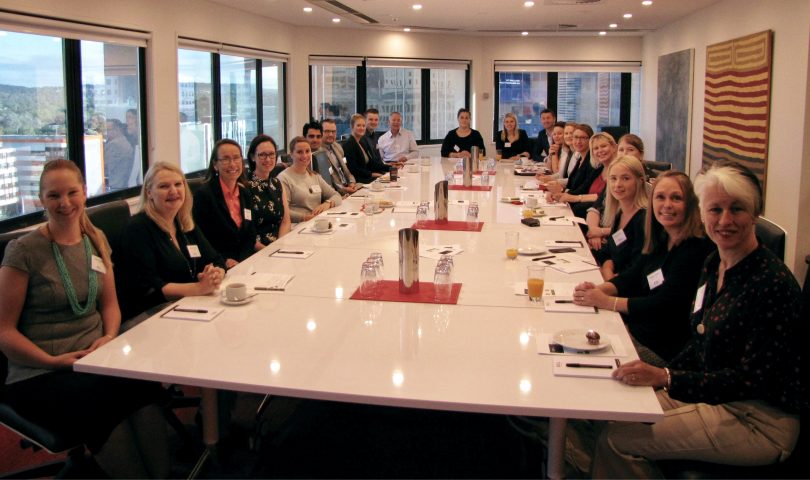
The Club in action!
You enter the comfortable board room filled with early morning light and are met with smiling faces. As the aroma of fresh coffee hits you and you see the breakfast delights on offer, you realise that it was worth setting the alarm a little earlier this morning. This is the HR Breakfast Club – where an intelligent and friendly group of professionals hash out the latest HR issues in a warm and welcoming atmosphere!
Meeting on the 3rd Friday of every month in an art-clad suite of BAL Lawyers (BAL) at Canberra House, the HR Breakfast Club is part support group – part information sharing, where attendees can brainstorm solutions to common problems faced by human resource professionals. If you’re an HR professional and you’ve ever asked yourself what other HR professionals might do when facing a particular situation, what the latest HR best practices and solutions are or wondered whether you need to bring in an employment lawyer or other expert for a specific reason, then HR Breakfast Club is for you. The best part is that every aspect of this informative resource (including a delicious light continental breakfast and tea/coffee) is free!
We asked Managing Legal Director for BAL, John Wilson, a few questions about the HR Breakfast Club.
1) How long have you been attending the Breakfast Club?
The HR Breakfast Club has been running for 18 months now, the first one being held in October 2016. I – along with the rest of our employment law team – attend every breakfast. We get anything from 25-40 attendees at each meeting.
2) What aspect of the club do you feel are the most beneficial to its attendees?
The HR Breakfast Club provides a hub for HR professionals to get together to share and discuss practical ideas and approaches to HR practice and associated legal issues.
3) In what way can the legal professionals (such as yourself) help HR managers during the meeting?
Handling issues in a manner that avoids adverse legal consequences is at the forefront of HR professionals’ minds. The Club provides an avenue for HR professionals to gain a valuable insight and know-how from expert employment lawyers. Equally, though, the conversation is about HR professionals sharing ideas and experiences with each other.
4) Can you give a brief example of a time when the Club achieved a positive outcome as a group, or for an attendee?
The group and individual attendees achieve positive outcomes from every Club meeting. But to give you an example, properly dealing with injured workers is a regular task that falls to HR professionals. The HR Breakfast Club meeting on that subject had participants coming away with very clear guidelines for ensuring a prompt, full, return to work for those injured employees capable of doing so and fair and legal approaches for dealing with situations when – despite all of the will of the world on all sides – such was never going to realistically happen.
5) Is there anything else you’d like to add about your experiences attending the Club meetings?
The HR Breakfast Club has become its own community of HR conversation. I’m constantly wowed by the diverse experience and insight of the Club’s attendees. Everybody leaves each Breakfast saying “Well, I’ve learnt something new today” or “I’m going to do that from now on”.
With 18 meetings held since its inception, the HR Breakfast Club has covered a multitude of important HR-related topics. A few recent topics include:
Wellbeing at work – Guest speaker, Lauren Sayers, who is Deputy HR Manager at ANU, spoke about workplace wellbeing programs. The group discussed what wellbeing programs are, how important they are, how to implement them and gave tips to each other on how to successfully maintain them.
Workplace Privacy – The Club heard a presentation by one of BAL’s dynamic millennial lawyers, Rebecca Richardson, about the ever-changing legal field of workplace privacy. Rebecca discussed privacy legislation and IT/social media use in the workplace (as well as outside the workplace), as well as the upcoming amendments to the Privacy Act 1988 (Cth).
Psychological Injury Workers Compensation – BAL special counsel, Bill McCarthy, who has decades of extensive experience in workers comp and personal injury insurance law, discussed the subject of psychological injuries in the workplace with the Club. Bill explained what constitutes a workplace psychological injury and what does not, and when employees are eligible for compensation. The group discovered some startling statistics related to this topic and discussed how these types of injuries might occur and how they can be prevented.
Some other topics over the past year and a half have included workplace policies, reference checking, performance management, recruitment, bullying and harassment, annual leave loading and even issues around office Christmas parties! As you can see, the Club addresses an eclectic mix of interesting and relevant topics and dichotomous HR-related topics are often brought up as a result. The Club offers a great opportunity to network with your HR professional peers, as well as share invaluable knowledge that’s not readily gained via other means.
The next HR Breakfast Club event is held on Friday the 20th April at BAL Lawyers, Level 9, Canberra House, 40 Marcus Clarke Street, Canberra City. It runs from 8 am to 8:45 am and includes a complementary light continental breakfast and tea/coffee or juice. If you’d like to attend, please RSVP BAL Lawyers by emailing events@ballawyers.com.au no later than 12 pm Friday 13 April – the Club has limited spaces and a ‘first in, first served’ policy applies, so get in quick! The Club welcomes topic ideas, so if you have an interest in discussing a specific topic or have an HR issue you’d like solved, or if you’d like to present, please feel free to note this on your RSVP (if you’d like to remain anonymous as the source of the idea/topic, please note this in your email).
Have you ever attended the BAL Lawyers HR Breakfast Club? Let us know by commenting, below.
This is a sponsored article, though all opinions are the author’s own. For more information on paid content, see our sponsored content policy.













